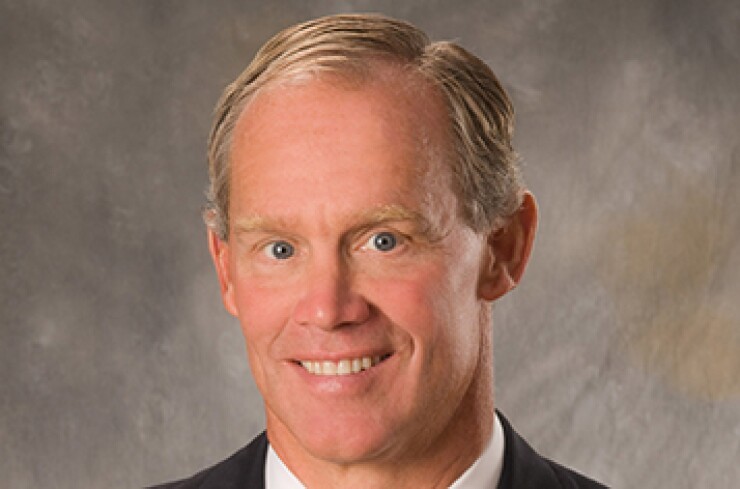
Bickering and dysfunction still hold sway at Pennsylvania's state capitol despite sighs of relief from the school districts and social service agencies that will receive catch-up funding.
Despite Gov. Tom Wolf's Tuesday approval of a stopgap funding measure, the fiscal 2016 budget impasse is about to enter its seventh month – a Keystone State record -- with no end in sight and with rating agencies ready to pounce again.
"We are waiting to see how further deliberations play out as legislators have still to determine a revenue package for fiscal 2016," Standard & Poor's said late Tuesday. S&P questioned whether lawmakers could plug a $500 million gap for fiscal 2016 and a $2 billion gap for 2017, or grasp a long-term pension liability estimated at up to $57 billion.
All three major bond rating agencies downgraded Pennsylvania in 2014. Fitch Ratings and S&P rate Pennsylvania's general obligation bonds AA-minus. Moody's rates them Aa3.
"There's a reason why the outside rating agencies have downgraded our debt," said Wolf. "They're telling the world what our legislators want to ignore. Our fiscal house is a mess."
Wolf, using line-item veto powers, rejected the education-aid components of the proposed $30.3 billion spending plan the House of Representatives sent him last week, while releasing about $23 billion in funding.
The part of the budget Wolf sighed provides enough funds to cover a six-month debt backlog, which he said would enable school districts and social service agencies to remain open.
The governor
Wolf said the Republican version effectively cuts $95 million from school aid.
Speaker Mike Turzai, R-Marshall Township, said the House would remain closed until Sunday, and on six-hour call thereafter. His statement triggered more crossfire on a day that began with Wolf calling the GOP "garbage" and "stupid" in an eight-minute news conference.
"This is unacceptable," Wolf wrote Turzai and Senate President Pro Tempore Joseph Scarnati, R-Brockway. "There is no reason why the House and Senate shouldn't be called back into session."
House Majority Leader Dave Reed, R-White Township, said the budget framework had fallen apart over vagueness about how to fund it.
"Certainly, there is a recognition that new revenues will be needed to help fund our state's priorities, but that recognition must also be respectful of the taxpayers," he said.
Mark Schwartz, a Bryn Mawr, Pa., attorney and former Democratic legislative coordinator under the late House Majority Leader K. Leroy Irvis, said he would lock Wolf and top lawmakers in a room, put away the key and bang heads until they struck a deal.
"So this is an example of the business acumen and leadership that got Wolf elected? He'll be lucky to get one budget done during his entire four year term," said Schwartz. "Too bad Pennsylvanians don't have the power to recall him and the rest in the General Assembly.
"After all, they are mandated by law to do only one thing in return for their great salaries and perks: pass a budget by the end of June. Now is a good time to start off with a clean slate."
Schwartz represented the Harrisburg City Council in attempt to file for Chapter 9 bankruptcy, which a federal judge negated.
Pension overhaul and privatization of the state's liquor-store system have surfaced as bargaining chips in budget deliberations, though both merit attention on their own to many observers.
"The state has issues that need attention such as liquor privatization, pension reform and expense control measures," said David Fiorenza, a Villanova School of Business professor and former chief financial officer at Radnor Township, Pa.
Inaction on pension liability worries Richard Dreyfuss, a Hummelstown, Pa., actuary and an adjunct fellow at the Manhattan Institute for Policy Research.
"I would further expect that as sustained and increasing employer contribution levels are required in the future, taxpayers will likely face another round of potential tax increases," said Dreyfuss, a former Hershey Foods executive.
On Dec. 19, the House soundly rejected a bill that would have moved future state government and school employees into a hybrid pension system that would have combined a defined-benefit plan with a 401(k)-style defined-contribution plan.
Dreyfuss and other critics said the measure did little about the enormous existing unfunded liability. Pennsylvania has not fully funded its actuarially required contribution since 2004.
Wolf vetoed a liquor-privatization bill in late June.
The emergency funding that Wolf approved should at least help stop the rating-agency bleeding for school districts. Standard & Poor's withdrew its ratings for the commonwealth's intercept credit enhancement program for distressed districts and Moody's downgraded Philadelphia's district five notches – the state's general obligation debt has fallen to the third worst among the 50 states.
Philadelphia had threatened to close its schools in late January.
The release of emergency aid to schools will help relieve schools' cash-flow pressures, said S&P, though it has not reinstated its rating on the enhancement program. "We still consider state aid payments to be unreliable given the state's chronic failure to pass an on-time budget," it said.





